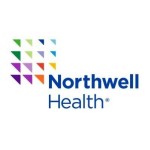Machine learning tool predicts respiratory failure in COVID-19 patients

MANHASSET, N.Y.–(BUSINESS WIRE)–In an effort to expedite care for coronavirus disease 2019 (COVID-19) patients upon hospital admission, a team at The Feinstein Institutes for Medical Research has developed a machine learning (ML) artificial intelligence (AI) powered clinical predictive tool that can accurately assess patients for the risk of respiratory failure within 48 hours. The research, led by the Feinstein Institutes’ Theodoros Zanos, PhD and Douglas Barnaby, MD, published in the Journal of Medical Internet Research.
Scientists collected and analyzed electronic health record (EHR) data from 11,525 patients who were admitted across 13 Northwell Health hospitals, New York’s largest health system, between March 1 – May 11, 2020. Of those patients, 8 percent (933 patients) were placed on invasive mechanic ventilation within 48 hours of admission. Using that data to aid clinicians in predicting which patients may be at risk of respiratory failure, help triage patients and reduce mortality, the team created and compared three ML tools to help score patients upon admission. One of the tools, gradient boosted decision trees – commonly known as XGBoost – had the highest average predictive accuracy at 92 percent.
To develop the ML clinical models, scientists used measurements commonly recorded in the emergency department, such as vitals and labs, along with demographics. The model performance was compared against and outperformed the Modified Early Warning Score (MEWS) – a ranking that assesses health risk factors – to calculate the chance of respiratory failure within 48 hours of hospital admission.
“Respiratory failure is the leading cause of death among patients with COVID-19 and it is imperative that our clinicians on the frontlines have the most unbiased, informative data to aid their decision making in the emergency department,” said Dr. Zanos, assistant professor at The Feinstein Institutes’ Institute of Bioelectronic Medicine. “The clinical tool we propose could identify patients who are at greater risk of deteriorating shortly after being admitted to the hospital and helps show that machine learning and AI can be powerful clinical assets in treating this complex virus.”
These models proved accurate in the ability to identify at-risk patients for earlier interventions, including closer patient monitoring, critical care consultation and earlier discussions about goals of care that could ultimately improve patient outcomes. The research team plans to implement the clinical tool within some Northwell Health hospitals.
“Data-driven, evidence-based clinical prediction tools can transform frontline medical decision making,” said Kevin J. Tracey, MD, president and CEO of the Feinstein Institutes. “Dr. Zanos is leading research to understand, validate and develop this strategy for COVID-19 care.”
Throughout the COVID-19 crisis, Dr. Zanos and his team have studied ML and AI to develop digital tools to aid clinicians, among them the Northwell COVID-19 Survival (NOCOS) calculator. In July 2020, Dr. Zanos published a perspective on how AI and ML tools could be used specifically for COVID-19. Recently, Dr. Zanos developed a new deep-learning vital sign predictive AI calculator called “Let Sleeping Patients Lie” which identifies if hospitalized patients can remain asleep overnight, and not be woken up for unnecessary vital sign checks.
About the Feinstein Institutes
The Feinstein Institutes for Medical Research is the research arm of Northwell Health, the largest health care provider and private employer in New York State. Home to 50 research labs, 3,000 clinical research studies and 5,000 researchers and staff, the Feinstein Institutes raises the standard of medical innovation through its five institutes of behavioral science, bioelectronic medicine, cancer, health innovations and outcomes, and molecular medicine. We make breakthroughs in genetics, oncology, brain research, mental health, autoimmunity, and are the global scientific leader in bioelectronic medicine – a new field of science that has the potential to revolutionize medicine. For more information about how we produce knowledge to cure disease, visit http://feinstein.northwell.edu and follow us on LinkedIn.
Contacts
Matthew Libassi
631-793-5325
mlibassi@northwell.edu


